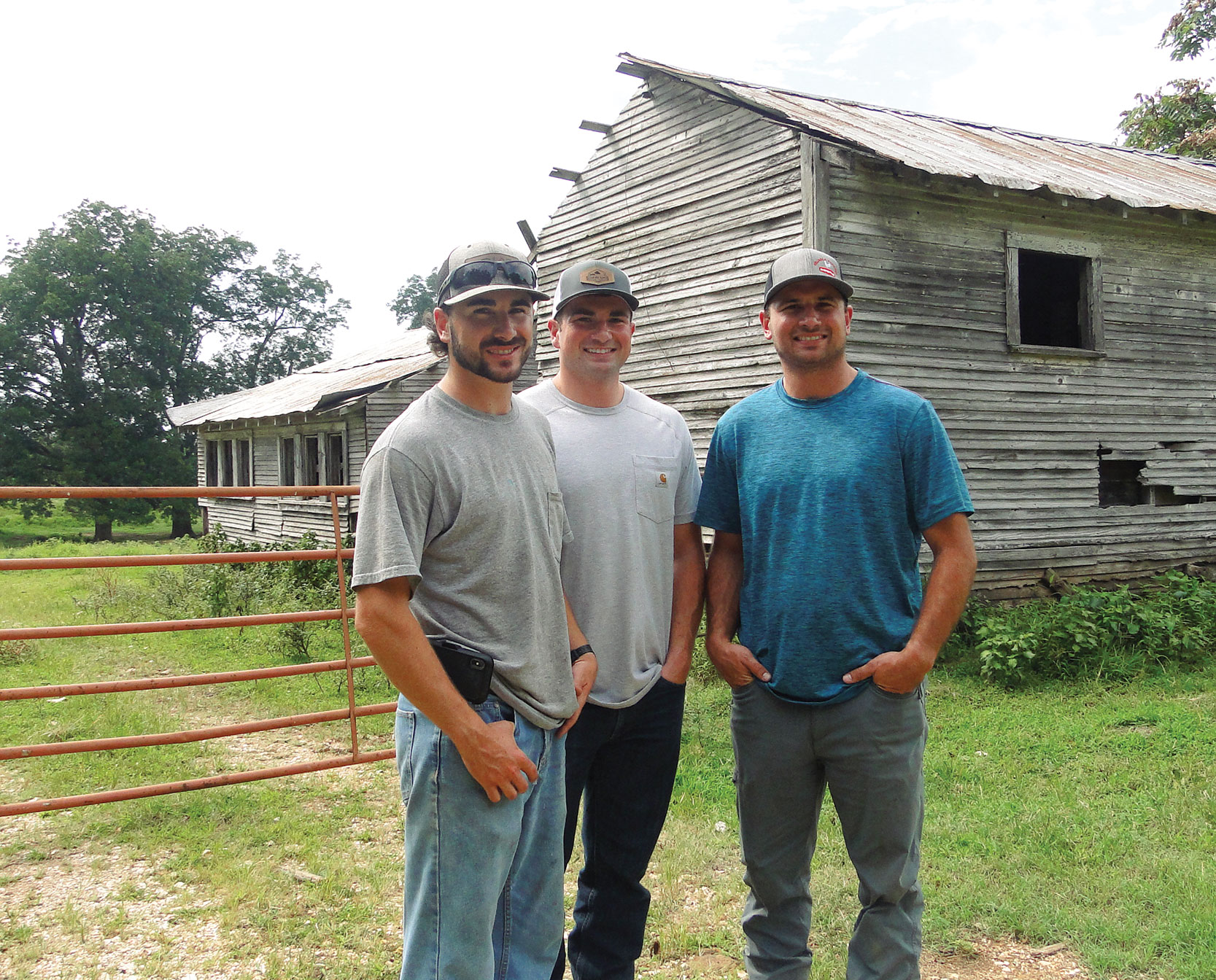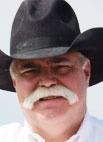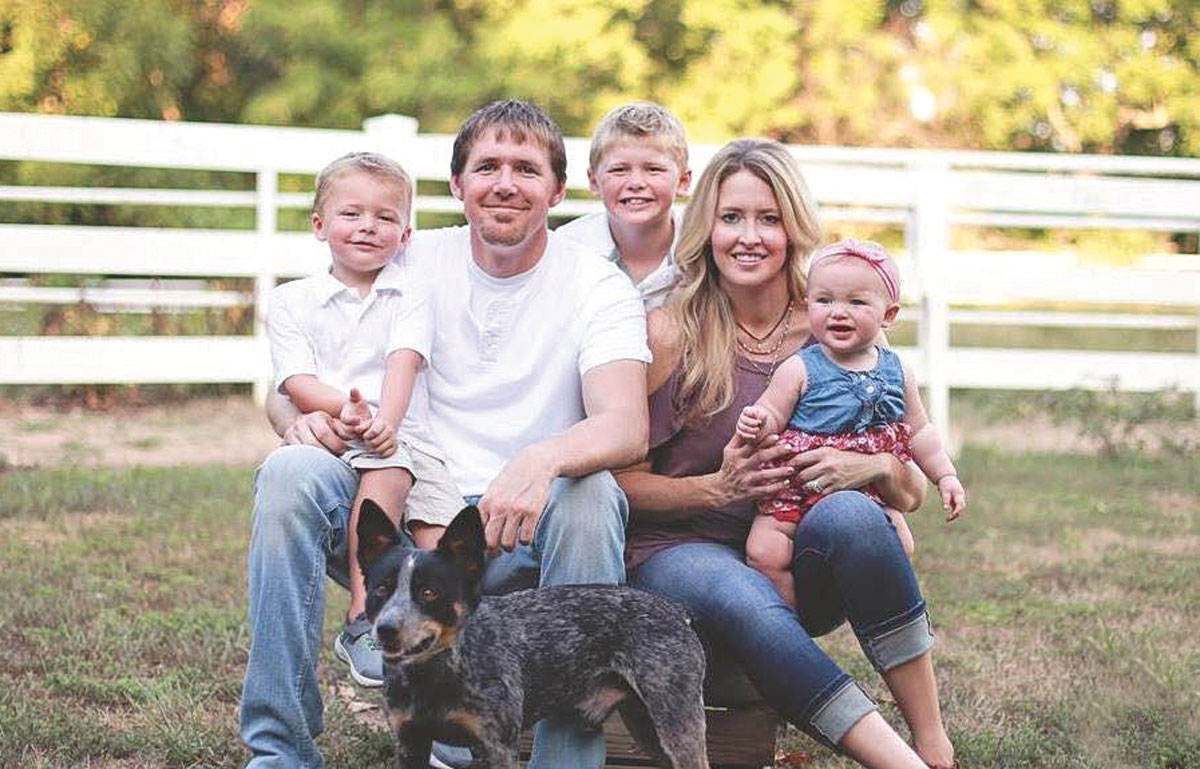
Brothers manage cattle and poultry operations on the farm that has been in their family for more than a century
Sterling Chamber Pitts founded what is now named Pitts Brothers Farm in 1914 with 350 acres devoted to raising apples. Sterling’s sons introduced registered polled Herefords as the apples were phased out. Chickens were introduced in 1966 and the farm is now ran by three brothers: Seth, Connor and Alec who are Sterling’s great-great grandsons.
“Today you can find no trace of the apple orchard,” Seth, the oldest brother, said. “The transition was complete and not a single apple tree can be found on the original acreage, though the acreage has increased to 1,100 acres.”
The boys’ father Russell passed from a heart attack when he was 42 in 2007. At that time, his father Roger took over the entire operation with the boys always helping out when not involved with school. Then Roger passed and the three brothers took over with their mother living in the original homestead and their grandmother just down the road.
Every day Grandma Mary Alice, 83, cooks for the hard-working and hungry young men who use the time to catch up on what each is doing and prioritizing. It’s all hands on deck when setting up for the chickens to be caught or a total clean out is due.
At the peak of chicken production, the farm ran nine broiler houses, with four having been retired and now only used for covered storage for equipment and hay.
“I always liked chickens better than cows and basically take care of the chicken side of the business,” Alec, the youngest of the three brothers, said. “I don’t much care for spraying around the chicken houses, the rest is golden.”
In 1999, the remaining chicken houses underwent a major upgrade which included cool cell pads, new water lines, and new stoves. They raise 120,000 birds to 7 1/2 pounds on a seven-week cycle with a 14- to 28-day cycle between flocks used for preparing for the next. Total cleanouts occur in the spring when the litter is used to fertilize their pasture and hay grounds.
“We never buy commercial litter and rotate which areas are fertilized so everything is fertilized once every three years,” explained Seth who focuses on financial and public relations management, as well as repairs.
Middle brother Connor is in charge of the cattle. Today the herd consists of 550, an increase of 300 head added after the four chicken houses ceased production. They are predominantly black mommas, which he believes sells better. Females are bred by 20 registered bulls: 15 Angus, two black Herefords, one Beefmaster, one Brangus and one Hereford.
The farm uses two 90-day breeding seasons intended to prevent calves from being born during the hottest part of summer and the coldest part of winter.
Connor prefers a bit of ear and facial markings with the Brangus used to “size them back up.” Bulls are selected for birthweight and milking ratios with a goal of creating calves looking as uniformly as possible so they can be sold in large groups thereby increasing profit. Calves are typically sold at the Benton County Sale Barn in Siloam Springs four times a year, with a typical sale consisting of 100 calves or more. While 50 to 60 heifers are retained each year, the herd is reaching a comfortable size.
“We have the size herd we want for now, so I’m considering selling bred heifers instead of saving them all as replacements,” Connor said.
Herd health is a priority. The cows and calves are vaccinated and wormed at least once a year, while bulls are worked twice a year, including checking for breeding soundness prior to each breeding season. Bulls are left in the same field while cows and heifers are spread around to perfect genetics. The entire herd is grass and hay fed, with those animals failing thrive on that regimen or that can no longer perform well being culled.
The land is divided into 13 pastures plus hay fields. Field composition is mixed grasses with Johnsongrass, fescue, Bermuda and crabgrass supported by naturally-occurring clover. Last year, the farm needed more hay and over seeded with wheat though that is not in this year’s plan. Land is boom sprayed though hay fields seldom need anything but spot spraying since the grass chokes out the weeds. In pastures, however the cattle choose grass first which leaves patches for weeds to spread. Hay is typically harvested three times per year.
While the Pitts brothers have always worked on the farm, the untimely passing of their father followed by their grandfather, has brought the brothers together as they look toward the future. They are considering phasing out the chicken business in order to focus solely on cattle. Nonetheless, the past influences many of their choices. For example, they wouldn’t even consider going into a hayfield without first greasing the equipment the way their grandfather taught them.
The Pitts family were the 2019 Farm Family of the Year. They didn’t even know they were in the running. One day Seth received a call informing him of the honor, and it took a while for him to realize they weren’t asking if the farm would like to participate.
What’s most important to everybody is that the family stays close by and works together though not necessarily with all three of the brothers using farming as their full-time occupation. The Pitts never want to lose the long-standing family tradition of Sunday dinners with everybody gathering around the table. The sixth generation is already joining this hard-working farm family.






